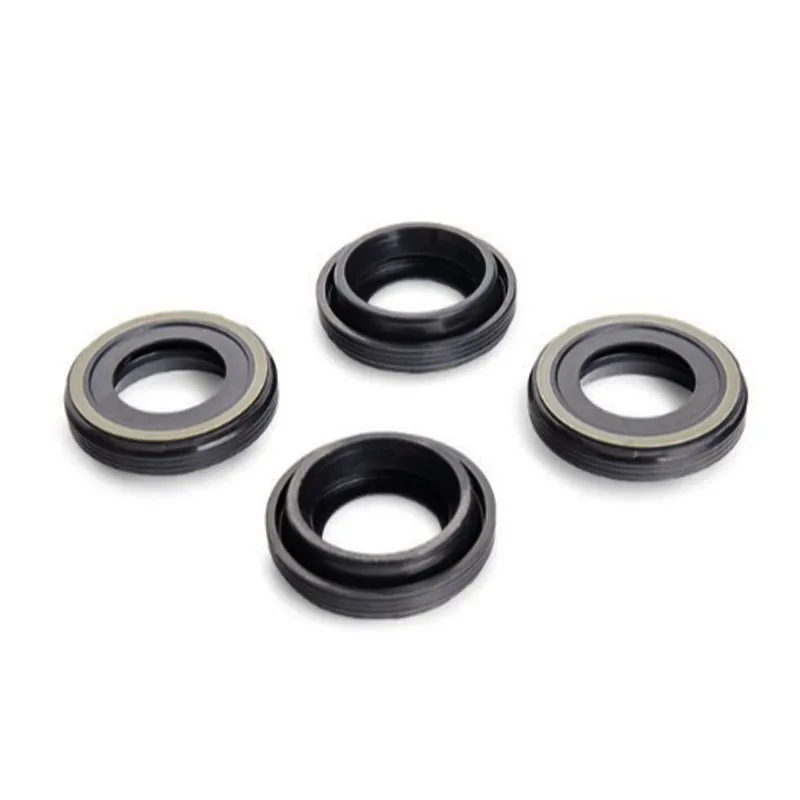automotive shaft seals
Understanding Automotive Shaft Seals Their Importance and Functionality
Automotive shaft seals, often overlooked yet crucial components, play a significant role in maintaining the efficiency and reliability of vehicles. These seals are designed to prevent the leakage of fluids and contaminants from entering the moving parts of the vehicle, ensuring the smooth operation of various systems, such as the engine, transmission, and differential.
The Function of Shaft Seals
Shaft seals, commonly referred to as oil seals or lip seals, are engineered to fit tightly around rotating shafts. Their primary purpose is to retain lubricants within the mechanisms while blocking dirt, dust, and moisture from penetrating into sensitive areas. This function is vital because the presence of contaminants can lead to increased wear and tear on components, ultimately shortening the lifespan of the vehicle.
There are various types of shaft seals, each tailored for specific applications. Common materials used in their production include rubber, silicone, and fluorocarbon, which provide excellent durability and resistance to heat, oil, and ozone. The design of the seal typically consists of a rubber lip that makes contact with the shaft, creating a dynamic seal that adjusts as the shaft rotates.
Importance of Proper Installation
automotive shaft seals

The installation process of automotive shaft seals is critical for ensuring optimal performance
. Improperly installed seals can lead to leakage, which may result in serious mechanical issues. Mechanics must carefully assess the condition of the sealing surfaces and ensure that the seals are fitted correctly to prevent premature failure. Additionally, using the right type of seal for the specific application is essential, as each component of a vehicle may require seals with different specifications.Signs of Wear and Failure
Over time, automotive shaft seals can wear out due to constant exposure to heat, pressure, and harmful substances. Some common signs of seal failure include oil leaks, noticeable fluid stains under the vehicle, or abnormal noises from the engine or transmission. Routine inspections and maintenance can help identify these issues early, allowing for timely replacements before more severe damage occurs.
Conclusion
In conclusion, automotive shaft seals may be small components, but their role in vehicle performance and reliability is undeniably significant. By effectively preventing fluid loss and stopping contaminants from entering sensitive areas, these seals contribute to the overall health of various systems within a vehicle. Regular maintenance and timely replacements when necessary can enhance longevity and ensure that vehicles operate smoothly. Understanding the importance of shaft seals can empower vehicle owners and mechanics alike to maintain their vehicles in optimal condition, ultimately enhancing safety and performance on the road.
-
Understanding the Front Main Engine Seal: Purpose, Maintenance, and Installation
News Jul.29,2025
-
Understanding O-Rings and Seal Rings: Types, Applications, and Custom Solutions
News Jul.29,2025
-
Understanding Crankshaft Oil Seals: Rear Seals, Pulley Seals, and Their Role in Engine Integrity
News Jul.29,2025
-
The Importance of Front and Rear Crankshaft Seals in Engine Performance and Oil Management
News Jul.29,2025
-
Crank Oil Seals: Functions, Types, and Cost Considerations in Engine Maintenance
News Jul.29,2025
-
A Comprehensive Guide to O-Rings and Seals: Types, Materials, and Global Applications
News Jul.29,2025
-
Mastering Diesel and Performance Engine Maintenance: A Guide to Critical Oil Gaskets
News Jul.28,2025
Products categories















